CRJ 16:1 out now!
This edition of the CRJ starts with comment pieces from Lord Toby Harris, Chair of the National Preparedness Commission, and Mami Mizutori, UN Special Representative of the Secretary-General for Disaster Risk Reduction in the UNDRR.
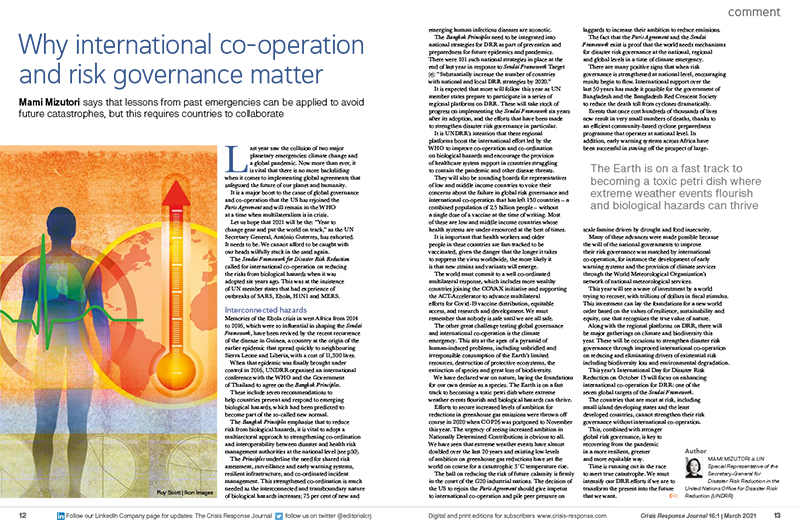
Our BCM and leadership feature ranges from cognitive biases in crisis management to the pitfalls presented by a lack of diversity in thinking. It also explores identified lessons and building back better from an organisational perspective, as well as communication and succession planning. Meanwhile, Patrick Lagadec and Matthieu Langlois say that proactive leadership resilience must be developed in the light of today’s mega-shocks, and provide a roadmap to such resilience.
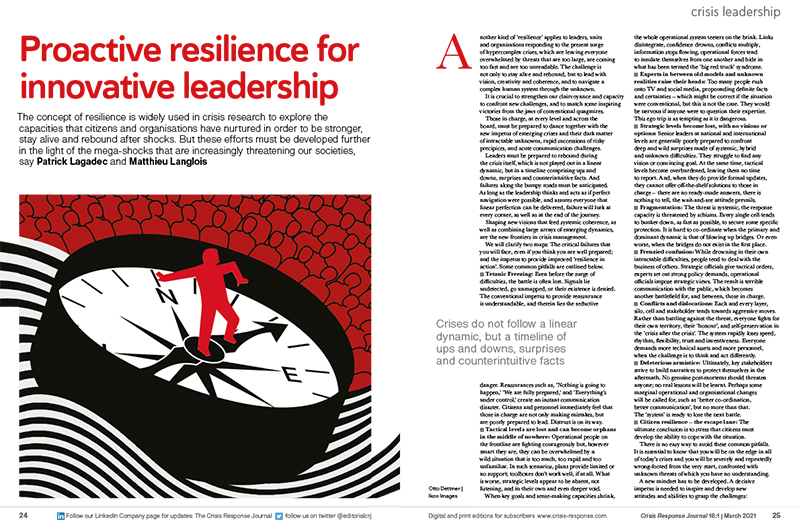
Moving on to Covid-19 and resilience, Lyndon Bird suggests that more organisations need to incorporate supply chain resilience fully into their overall corporate business continuity programmes, while Gilles Paché examines the role of logistics in vaccine distribution. This feature also provides a detailed case study of making one particular entertainment venue Covid safe, and news of a technology that prevents Covid transmission in occupied spaces.
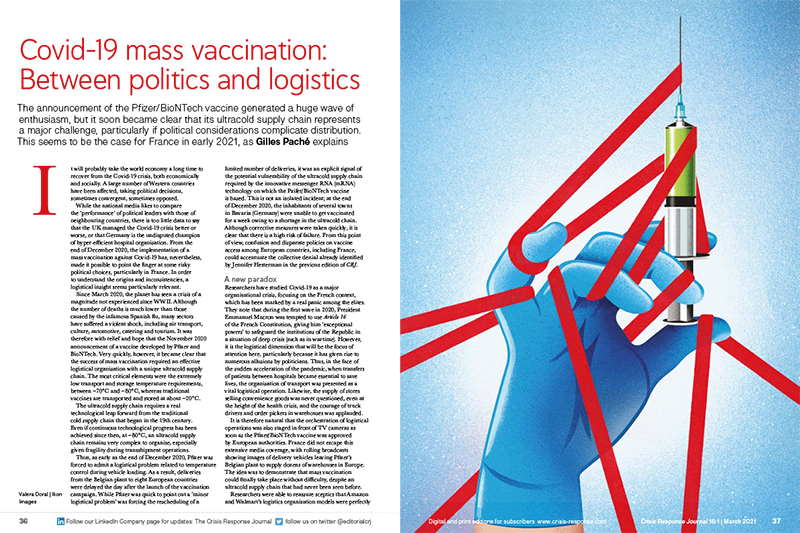
The effects of Covid-19 are manifold and pressing, but we should be grasping the nettle and facing up to the even greater, overarching challenges of climate, environment and ecology – all of which are interlinked and essential to long term resilience and survival of individuals, communities and organisations. CRJ’s section on these areas asks why we suffered such a great failure of imagination when it came to Covid-19 and how we cannot repeat this with climate. Governance and breaking the cycle of disaster are discussed in an interview with Mami Mizutori, and Emily Hough interviews Robert Bilott, the lawyer who helped to expose the dangers of PFOA, or ‘forever chemicals’.
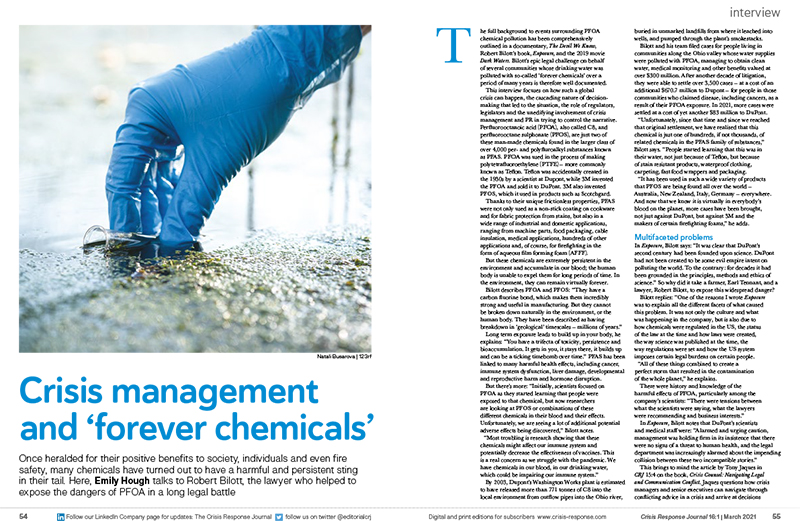
Claire Sanders reports both on the economics of biodiversity and on the consequences of human activity on bee species. Phil Emonson of the EPS emphasises the need to act, prepare and adapt, especially in the case of flooding, and Andrew Staniforth provides an overview of how drones are helping to reduce the effects of climate change.
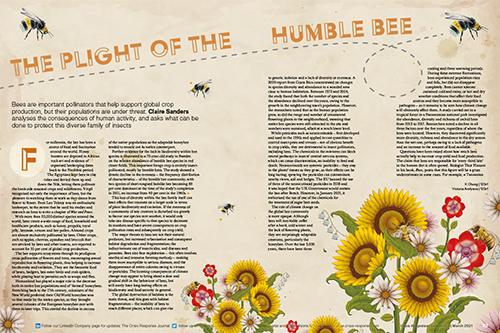
CRJ then turns to frontline responders, with news of an award-winning police mediation scheme set up in Spain to resolve an epidemic of community conflicts brought about by lockdowns and quarantine; and Jennifer Hesterman analyses the violence and attacks on police at the Capitol Building in Washington, DC, in January. CRJ also looks at the critical frontline healthcare situation in Yemen, a country in dire crisis.
One of the flashpoints alluded to on this edition’s front cover is that of societal division and polarisation; Emily Hough speaks to Peter T Coleman, who works on intractable conflicts and applies complexity science to conflict and division, gaining an insight into his research on toxic polarisation. Claire Pershan says the pandemic has exposed stark lessons on why social media platforms are not optimised for crisis response, while Susan Morgan looks at the disinformation bubble, saying information fragmentation is fast becoming a fragmented and polluted environment, and that this has serious implications for emergency management and crisis response. However, there are organisations that are working hard to provide clarity and build trust online, as Aimee Rinehart of First Draft news explains. Lina Kolesnikova assesses the information abounding on social media platforms, and how they manipulate and mange beliefs and thoughts, while Lyzi Cota explores the genesis of psychological warfare.
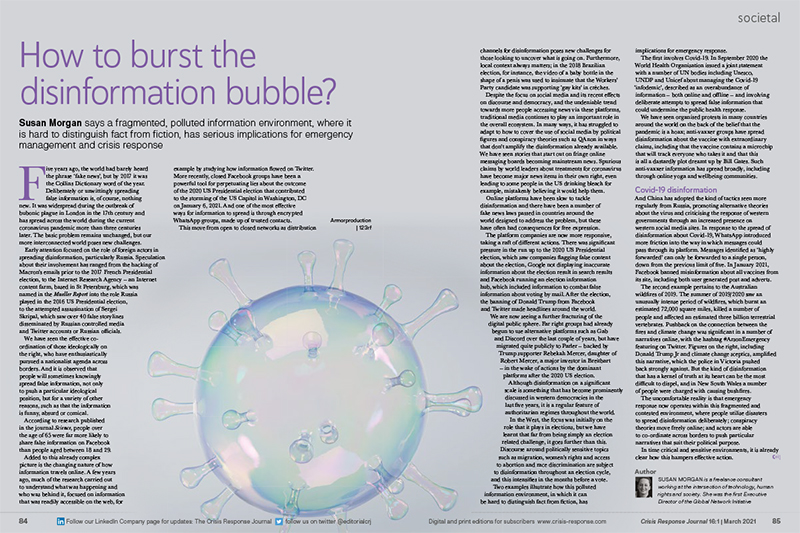
In innovation, Pix4D provides a fascinating case study into how photogrammetry and drones are enhancing the debriefing process for fire and rescue services and Charles Werner applauds the success of London fire Brigade’s drone programme.
To round off the edition, we review a book on Elementary Survival Medicine, give a round-up of events for this year and Claire Sanders speaks to Raimondo Chiari of the ICRC in our Frontline feature.
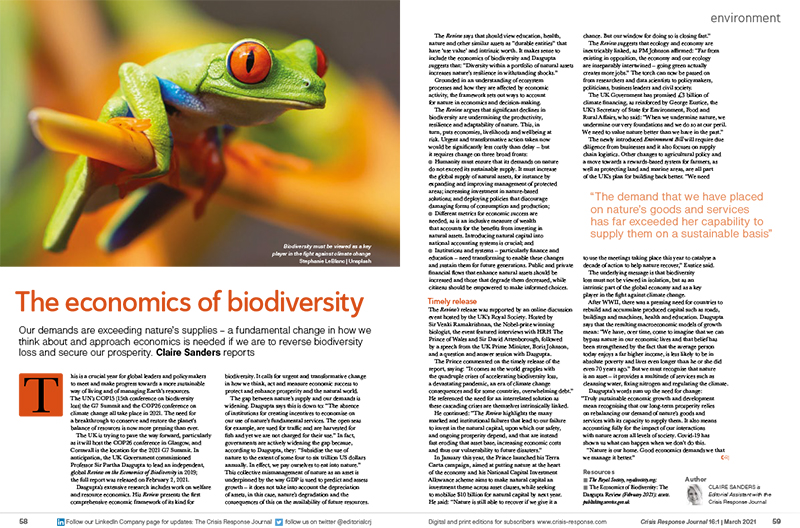
Click here to subscribe to the Crisis Response Journal and join our community!